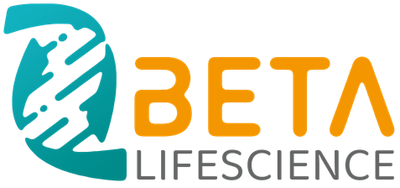

- Home
- Companies
- Beta Lifescience
- Articles
- Establishment of a Stable Organoid ...
Establishment of a Stable Organoid Culture System: Customization and Standardization
Prefix
Organoids are miniature organs created in vitro from adult stem cells (ASCs) or pluripotent stem cells (PSCs). They form three-dimensional (3D) tissue-like structures through the self-organization, self-renewal, and differentiation capabilities of stem cells. Compared to traditional two-dimensional (2D) cell cultures or spheroids, organoids closely resemble living organs in terms of anatomy and function. Tumor organoids derived from patient tumor tissues can maintain the genetic heterogeneity of natural tumor tissues and have predictive value for individual patient drug responses. As a result, organoids are increasingly being used as an effective model for drug screening, drug efficacy evaluation, and developmental mechanism studies.
Organoid Culture System
The attempt to cultivate organoids in vitro has a long history, but it has always been challenging. From obtaining and preserving tissue samples, establishing organoid culture systems, to identifying and stabilizing organoids through cryopreservation and passaging, each step is filled with difficulties. Today, let's talk about the establishment of organoid culture systems, delving into the concepts of "customization" and "standardization" in organoid culture processes.
If you have just started or are currently conducting organoid experiments, have you encountered the following issues?
The first step in planning organoid experiments is literature research. Enter specific keywords related to organoids, and dozens of articles appear. Although the establishment of culture systems is similar, each has its own uniqueness, making it a long and challenging process to optimize and explore specific experimental systems. Such complexity in organoid culture systems can be daunting for novice researchers.
Optimizing and exploring experimental systems may not be a problem for true scientists. However, if the ultimate goal of your project is not to create a completely new organoid model but to use organoid models for subsequent experiments and research, the exploration of organoid culture medium components in the early stages will only become an obstacle for your entire organoid research project.
Of course, you may also encounter completely opposite situations:
When your goal is to create or explore a novel organoid model, with no or limited references available for the experimental system, continuous optimization and exploration of the organoid culture system become an essential part of your project's development.
For research experiments aimed at optimizing organoid culture medium components, selecting self-prepared culture medium is also a viable option.
In the vast realm of organoid research, the choice between "customization" (self-prepared culture medium) and "standardization" (commercialized complete culture medium) during organoid culture processes is ever-present. There is no clear distinction between the two, and their advantages and disadvantages need to be carefully considered based on specific experimental goals, duration, cost, and technical conditions. However, the issue of standardization in organoid culture cannot be solely resolved by commercial culture media. For example, in the case of tumor organoids, only by thoroughly understanding the driving factors and treatment methods of tumors and reproducing the biological heterogeneity of tumors at each stage of organoid culture can we achieve standardized operational procedures and ultimately succeed in organoid culture [1].
Regardless of choosing "customization" or "standardization," establishing a stable organoid culture system is still one of the essential goals in all organoid experiments. With a professional research and development team, BetaLifeScience has meticulously created an organoid validation platform and can provide a series of validated, highly active, and reliable organoid culture products, making your organoid experiments efficient and worry-free.
Cytokines Validated Through Organoid Culture
Beta LifeScience has provided cellular factors that have been validated in vitro models, including human tumor organoids such as pituitary tumor organoids and meningioma organoids, human normal organoids such as human intestinal organoids derived from induced pluripotent stem cells (iPSCs), and mouse normal organoids such as small intestine organoids, colon organoids, stomach organoids, and bile duct organoids.
Recommended Products
Recombinant Human/Mouse/Rat Activin A
Recombinant Human/Mouse/Rat BMP-2
Recombinant Human DKK-1 (N-8His)
Recombinant Rat/Mouse/Human FGFB
Recombinant Mouse/Human FGF-7/KGF
Recombinant Rat/Mouse/Human FGF-9
Recombinant Rat/Mouse/Human FGF-10
Recombinant Rat/Mouse/Human/Canine GDNF
Recombinant Human OSM (N-6His)
Recombinant Rat/Mouse/Human Prolactin/PRL
Recombinant Human RSPO1 (C-6His)
Recombinant Human RSPO3 (C-Fc-6His)
Recombinant Rat/Mouse/Human LIF
Organoid culture media validated by organoid culture
BetaLifeScience provides a series of organoid culture media for normal or tumor tissue organoids. These culture media are ready-to-use, simple, and have a high success rate, enabling researchers to efficiently and conveniently conduct organoid experiments.
References
[1] Zhou C, Wu Y, Wang Z, Liu Y, Yu J, Wang W, Chen S, Wu W, Wang J, Qian G, He A. Standardization of organoid culture in cancer research. Cancer Med. 2023 Apr 20. doi: 10.1002/cam4.5943. Epub ahead of print. PMID: 37081739.
